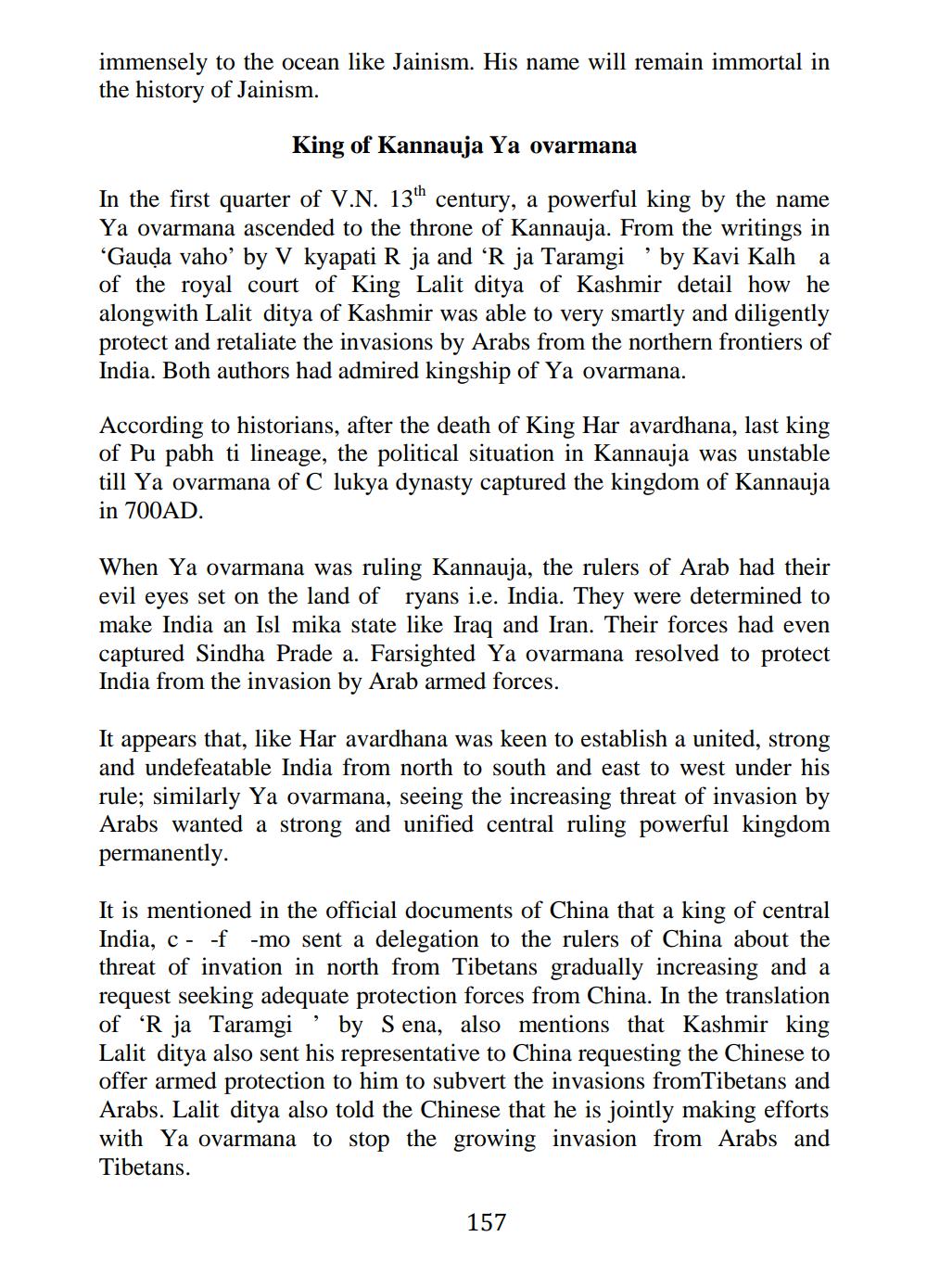________________
immensely to the ocean like Jainism. His name will remain immortal in the history of Jainism.
King of Kannauja Ya ovarmana
In the first quarter of V.N. 13th century, a powerful king by the name Ya ovarmana ascended to the throne of Kannauja. From the writings in 'Gauda vaho' by V kyapati R ja and 'R ja Taramgi 'by Kavi Kalh a of the royal court of King Lalit ditya of Kashmir detail how he alongwith Lalit ditya of Kashmir was able to very smartly and diligently protect and retaliate the invasions by Arabs from the northern frontiers of India. Both authors had admired kingship of Ya ovarmana.
According to historians, after the death of King Har avardhana, last king of Pu pabh ti lineage, the political situation in Kannauja was unstable till Ya ovarmana of C lukya dynasty captured the kingdom of Kannauja in 700AD.
When Ya ovarmana was ruling Kannauja, the rulers of Arab had their evil eyes set on the land of ryans i.e. India. They were determined to make India an Isl mika state like Iraq and Iran. Their forces had even captured Sindha Prade a. Farsighted Ya ovarmana resolved to protect India from the invasion by Arab armed forces.
It appears that, like Har avardhana was keen to establish a united, strong and undefeatable India from north to south and east to west under his rule; similarly Ya ovarmana, seeing the increasing threat of invasion by Arabs wanted a strong and unified central ruling powerful kingdom permanently.
It is mentioned in the official documents of China that a king of central India, c- -f -mo sent a delegation to the rulers of China about the threat of invation in north from Tibetans gradually increasing and a request seeking adequate protection forces from China. In the translation of 'R ja Taramgi ' by Sena, also mentions that Kashmir king Lalit ditya also sent his representative to China requesting the Chinese to offer armed protection to him to subvert the invasions from Tibetans and Arabs. Lalit ditya also told the Chinese that he is jointly making efforts with Ya ovarmana to stop the growing invasion from Arabs and Tibetans.
157




